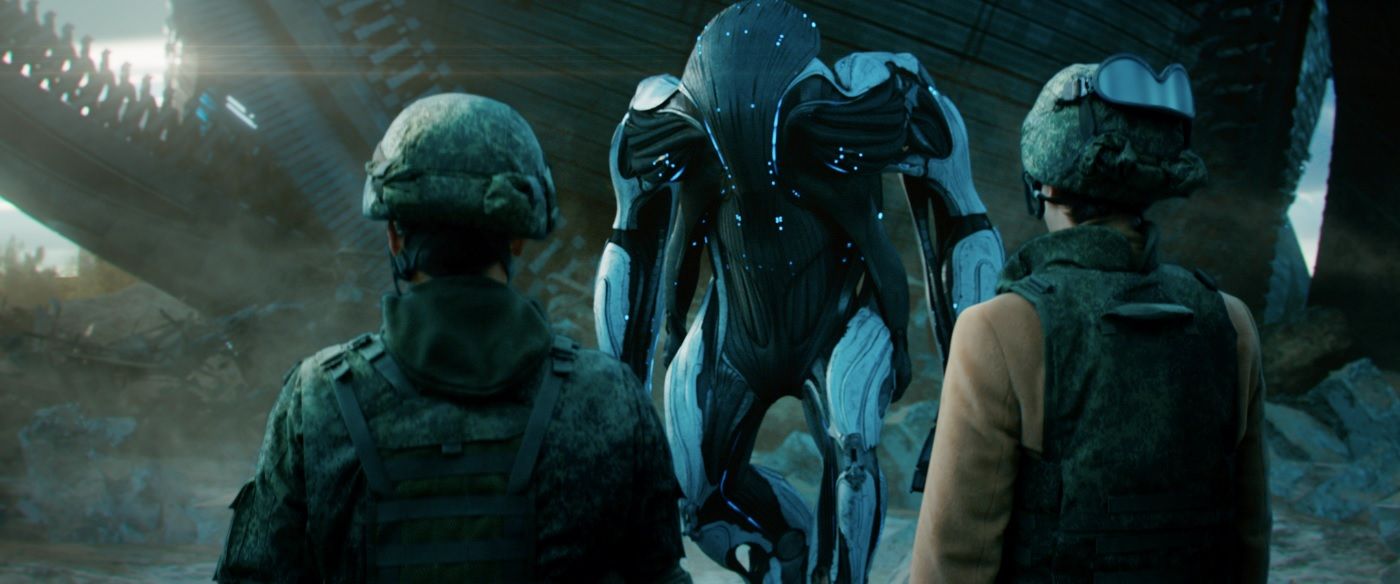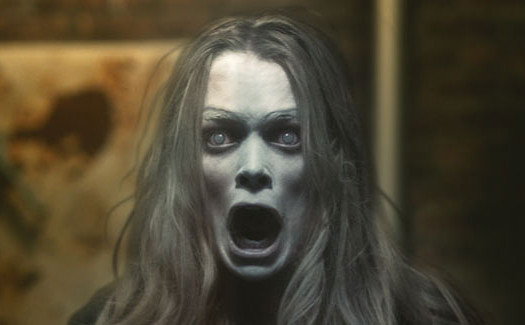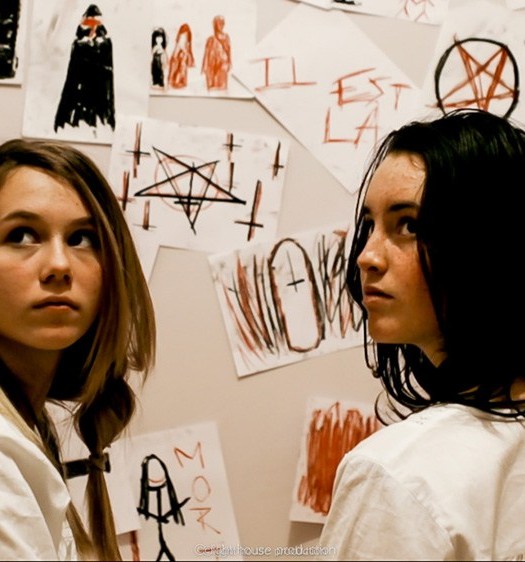Damaged by a meteor shower, an alien space ship crash lands onto a Russian city, causing mass destruction, death, and panic. The city is put under curfew and martial law as military defense agencies try to establish contact with the interplanetary visitors. The aliens just hope to patch up their ship and leave in peace, but the local citizens grow increasingly hostile.
Director Fedor Bondarchuk’s big budget alien invasion film invokes shades of Neill Blomkamp’s District 9 in terms of social commentary. Written by Oleg Malovichko and Andrey Zolotarev, the narrative has a lot to say about humanity, particularly that of intolerance. The humanoid aliens that mistakenly crash land are met with trepidation from some and outright resentment from others, in an overt symbolism for immigrants. What’s surprising, though, is that it’s not the military that’s the root of the anger, but youth.
Director Fedor Bondarchuk’s big budget alien invasion film invokes shades of Neill Blomkamp’s District 9 in terms of social commentary.
Yulia (Irina Starshenbaum) is the daughter of respected Colonel Lebedev (Oleg Menshikov), one high on the chain of command during the martial law. Between his dedication to his duty and her rebellious teenaged nature, their relationship is extremely strained. He’s strict and stoic, and she longs for connection and freedom. That her best friend was killed during the UFO’s crash only twists her rebellion into rage. When she teams up with her boyfriend Artyom (Alexander Petrov) and his no-good friends for revenge, she winds up nursing unconscious humanoid Hekon after he’s injured saving her life. If you guessed that Hekon would end up teaching Yulia life altering lessons on compassion and tolerance, well, you’d be spot on.
While it’s a beautiful message, the narrative undermines its impact by creating a love story between Hekon and Yulia. Or more accurately, a love triangle. Yulia’s transition from hating the one responsible for killing her best friend to being completely smitten with the handsome humanoid is instant without any plausible build up. It doesn’t help that the chemistry between the leads is lacking. It’s a forced plot device that drives Artyom from a misguided angry youth to full blown rage-fueled antagonist that ignites the citizens to turn their fear into violence.
It’s also clear that the writers have a franchise in mind for Hedok and Yulia. There’s a plot point involving a bracelet that Hedok transfers to Yulia that’s the base for a weird shower scene and has clear meaning to it, but the writers leave it underdeveloped to explore in a future sequel. A tiny moment at the end all but demands a sequel, as well. The idea of a franchise isn’t a bad one, but this screenplay feels a little under baked.
There’s a lot to like about Attraction. It just squanders a lot of its goodwill on a lackluster love story.
Bondarchuk brings strength in his direction, as does the cinematography for its relatively small (by Hollywood standards) big budget. Starshenbaum makes an effective leading lady as Yulia, full of strength and vulnerability in equal measure. She’s either hindered or bolstered by her scene partner, however. When she’s opposite Menchikov’s Colonel Lebedev, they both soar. Lebedev is a surprising revelation as the assertive authoritarian hiding a deep well of compassion. The father and daughter scenes bring more emotional depth to the film that the bland love story warrants.
There’s a lot to like about Attraction. It’s visually stunning and offers a relevant message. Fans of District 9 will find much to like about this far more optimistic, less gritty take on intolerance. It just squanders a lot of its goodwill on a lackluster love story.
Attraction made its North American premiere to a sold out crowd at Fantasia on July 29, 2017.
Attraction [Fantasia Review]
Mixed
































August 1, 2017
Attraction [Fantasia Review] https://t.co/5UCjxGOCrl